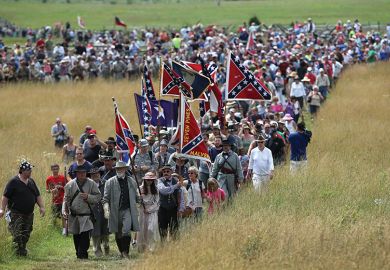Andrew Gilligan's brief early-morning interview on BBC Radio 4's Today programme in May 2003 (concerning the Government's "sexing up" of the intelligence that took it into the war with Iraq) unleashed a furore of such potency and with such monumental repercussions that it has left a permanent scar on the face of British journalism. And the affair has been the subject of speculation, soul-searching, blame and self-justification ever since.
So it is fitting that both these studies use it as their centrepiece. Nothing better illustrates the dilemmas of journalism, its ethics and the interplay of balance and bias. Tony Harcup's main concern is the behaviour of individual journalists. "Ethics are integral to being a good journalist. An ethical journalist is one who cares: cares about accuracy, cares about people, cares about journalism, cares enough to speak out and cares enough to challenge preconceptions and prejudices."
But if journalism is to maintain its role as the fourth estate, challenging the establishment and uncovering truth, it must be trusted. So for Harcup the most dangerous feature of the Gilligan row is that the BBC's inept handling of it jeopardised that trust. But he also uses it as an object lesson in the most basic rules of journalism: protect and respect sources; have two back-ups per story; never make unsubstantiated claims; check and double-check; take meticulous notes. Gilligan himself represents many of the qualities it takes to be a journalist. Thick-skinned and tenacious, he tells Harcup he regrets his "slip of the tongue" that fateful morning when he omitted to add the words "I was told" to his assertion that the Government had deliberately lied. But he doesn't regret the scoop and maintains that it's not journalists who lie but politicians.
And that's why the Gilligan story emerges as the fulcrum of Harcup's entertaining study, which is packed with illustrations of journalistic heroism and skulduggery. There's a whole chapter on crime reporting, which Harcup regards as "the lifeblood of British newspapers", spiced with examples of questionable journalistic practice, the tricks reporters use to persuade bereaved relatives to talk to them and the willingness of some to wreck lives. Making the distinction between "public interest" and "what interests the public", he notes with disappointment that two years in a row the British Press Awards Scoop of the Year went to tabloid papers for celebrity gossip stories.
This is an engaging and useful reference book, which draws on the views of fellow journalists and academics as well as the author's research. As well as a round-up of the regulatory framework governing the media, it includes a comprehensive selection of editorial guidelines and codes of conduct to help undergraduates and new journalists navigate their ethical journeys.
What it doesn't deal with at all, though, is the often decisive role of media owners.
And this is one of the many strengths of Guy Starkey's impressive study, which considers not only the notion of balance and impartiality, but also the role of regulators and owners, the nature of democracy and representation, the producers of news and, crucially, its audiences. While many of his case studies are current, he also offers a historical context, reminding us that debates about spin date back to Ancient Greece.
He accepts that "impartial journalism" is an oxymoron, yet still argues for the importance of striving after balance, however flawed the attempts may be. Like Harcup, he regards the Gilligan case and the subsequent Hutton inquiry as emblematic of many of these dilemmas. For the BBC, objectivity and impartiality are the watchwords of its journalism. And yet the BBC has, at times, abandoned its own code. During the General Strike of 1926, Starkey observes, Reith sided with the Government. More recently, in the aftermath of the Hutton inquiry the resigning chairman, Gavyn Davies, protested that the BBC had "taken a different view" from the Government, when a neutral BBC should have not taken a view at all.
Starkey has reservations not merely about the notion of balance, but also about the reliability of audience research. In line with other key media commentators, he rejects the old-fashioned view of audiences as passive receivers, demonstrating how different people "make active readings of media texts according to their own beliefs and perspectives".
And the most telling example is his own concentrated study of Radio 4's Today programme during the 1997 general election campaign, where his panel of respondents offered utterly different reactions to the same broadcasts.
His intimacy with the process of live broadcasting also gives rise to detailed and revealing accounts of the different techniques, which may lead to bias. Detailed case studies are offered not just of the Today programme's election coverage but of Breakfast with Frost , Question Time and, most entertainingly, of press coverage of the Millennium Dome.
Through well-documented sections on how different media systems operate across the world, he warns that while regulation is useful, it is never infallible. Whatever the system, the state will intervene and owners will be powerful.
Starkey does not share Harcup's optimism about the general health of UK journalism, but does agree with the vital importance of ensuring a responsible, fair media. The answer, he argues, is to recognise the fallibility of journalists and to encourage audiences to be aware of it so that their own readings of media output are properly informed. "In the struggle to come between competing globalising and resistive forces, democracy will surely depend on it."
Starkey's is a more far-reaching and encompassing work than Harcup's, but both make valuable, authoritative and well-evidenced contributions to the growing body of scholarship in this area and should become essential reading for serious students of journalism and for those who practise it.
The Ethical Journalist. First Edition
Author - Tony Harcup
Publisher - Sage
Pages - 211
Price - £19.99
ISBN - 9781412918961
Register to continue
Why register?
- Registration is free and only takes a moment
- Once registered, you can read 3 articles a month
- Sign up for our newsletter
Subscribe
Or subscribe for unlimited access to:
- Unlimited access to news, views, insights & reviews
- Digital editions
- Digital access to THE’s university and college rankings analysis
Already registered or a current subscriber? Login



